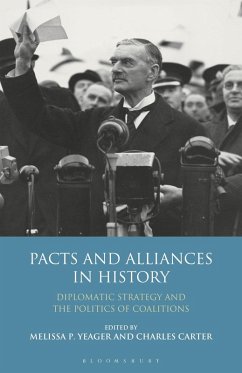Agreements between nations constitute the fundamental framework for the ordering of international affairs; and their successes and failures have led to some of the great turning points in modern history. The result of a unique collaboration by historians and political scientists, this book delineates, defines and assesses the idea of pacts and alliances as a key model of political organisation. Anchored by leading academics in the field, it presents numerous case studies covering a broad chronological sweep. Through theoretical and empirical methodology, the contributors address pacts and alliances from the fifteenth century onwards including, among others, the Korean-American and Moscow-Cairo alliances, the Sevres Pact, Turkey's accession to NATO and US alliances around the world. Through a close reading of these historical diplomatic relationships, fundamental yet relatively unaddressed research questions are developed and explored. First, what are the common denominators shared by successful alliances? Second, why do pacts and alliances disintegrate? Third, is the eventual demise of pacts and alliances inevitable?
Finally, what are the implications of these issues on pact and alliance making today? This is the first volume to address this wide range of issues, and to bring together researchers and theorists from the historical and political disciplines to provide original and groundbreaking theories of diplomacy. Together, these case studies explore why alliances succeed, why they fail and why it matters. Pacts and Alliances in History is therefore not only important reading for the next generation of policymakers, but will also help frame scholars' enquiries as they try to understand key events in international relations and history.
Finally, what are the implications of these issues on pact and alliance making today? This is the first volume to address this wide range of issues, and to bring together researchers and theorists from the historical and political disciplines to provide original and groundbreaking theories of diplomacy. Together, these case studies explore why alliances succeed, why they fail and why it matters. Pacts and Alliances in History is therefore not only important reading for the next generation of policymakers, but will also help frame scholars' enquiries as they try to understand key events in international relations and history.









